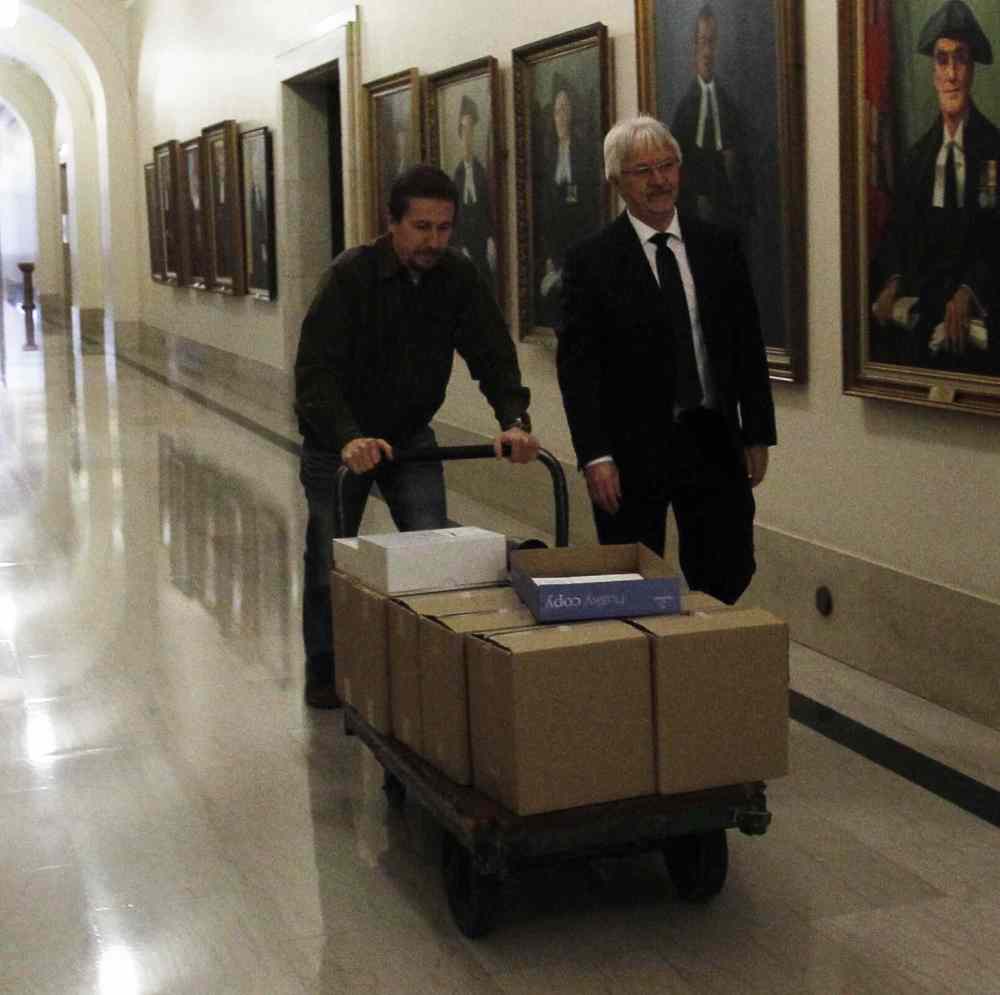Real message of Sinclair inquiry is a dire warning
Ensure every child and family has support for health, home, education
Advertisement
Read this article for free:
or
Already have an account? Log in here »
To continue reading, please subscribe:
Monthly Digital Subscription
$0 for the first 4 weeks*
- Enjoy unlimited reading on winnipegfreepress.com
- Read the E-Edition, our digital replica newspaper
- Access News Break, our award-winning app
- Play interactive puzzles
*No charge for 4 weeks then price increases to the regular rate of $19.00 plus GST every four weeks. Offer available to new and qualified returning subscribers only. Cancel any time.
Monthly Digital Subscription
$4.75/week*
- Enjoy unlimited reading on winnipegfreepress.com
- Read the E-Edition, our digital replica newspaper
- Access News Break, our award-winning app
- Play interactive puzzles
*Billed as $19 plus GST every four weeks. Cancel any time.
To continue reading, please subscribe:
Add Free Press access to your Brandon Sun subscription for only an additional
$1 for the first 4 weeks*
*Your next subscription payment will increase by $1.00 and you will be charged $16.99 plus GST for four weeks. After four weeks, your payment will increase to $23.99 plus GST every four weeks.
Read unlimited articles for free today:
or
Already have an account? Log in here »
Hey there, time traveller!
This article was published 31/01/2014 (4330 days ago), so information in it may no longer be current.
Pay now or pay later.
This, to me, is really what Phoenix Sinclair Inquiry Commissioner Ted Hughes really wanted to convey to all Manitobans today.
Not just to our provincial government, and not just those who work within Child and Family Services.

Pay now, Hughes tells us: Pony up the dough for early intervention with children and their families, for poverty-reduction, quality health care and accessible and safe public housing.
Fork out now to ensure every Manitoba child has a baseline of normality.
Or pay later: Watch as inattention to providing the very basics for all kids results in more need for an already stressed child-welfare system and increased numbers of kids coming into foster care.
Watch as we see more broken families, more hapless souls entrenched in the criminal justice system, more addictions, more hopelessness.
This is Mr. Hughes’s message to us, at root. In fact, I see it as more than that, personally. It’s a dire warning.
Yes, it’s risky to take the complexities of 62 findings from a months-long public inquiry and reduce it to a cliché.
And while many of Hughes’s recommendations to government on how to improve CFS to better protect kids are entirely on point and in line with the evidence, it’s not until 49 recommendations in that he hits us — the larger sense of “us” — with the really hard stuff.
They’re ideas and positive ways forward, I contend, that those in power have known all along.
These include: raising social assistance housing allowances to 75 per cent of the median market rate, stable and long-term funding for community organizations that provide prevention services and additional focus on adult education.
That last point is curious because it’s not directly related to children per se.
But consider Hughes’s reasoning: “Over the long term, education offers one of the best means of breaking the cycle of poverty, which is one of the major risk factors for children,” he says.
In other words: pay now, or pay later.

I get that many who followed the inquiry into Phoenix’s voyage through the CFS system became astonished at what they were hearing, of the slip-ups and lack of attention to her case, the failures to fully investigate, the apparent lack of accountability for what happened.
I certainly was. But only up to a point.
Because it became clear to me that blame and pointing fingers will get us nowhere, especially so many years after she had died — and that her despicable mother and stepfather were really, at root, the cause of most of her misery.
But here we are, eight years, seven months and 21 days after her murder, finally getting to the larger truth we’ve likely known all along.
There are things that can be done to ensure there’s never another situation like Phoenix Sinclair had to endure.
But it’s going to take will, determination, innovation — and yes, a lot of money to get us there.
Are we willing to pay the price to build a better, more just society as Mr. Hughes has laid out for us?
Stay tuned, I guess.






